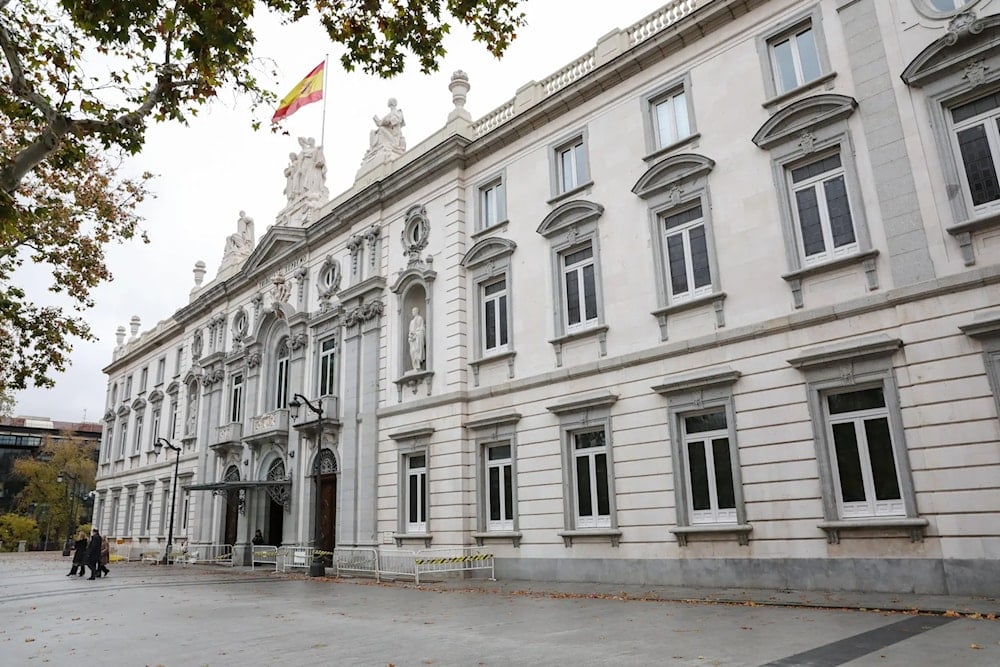Spain opens Sedinor case over steel used in Israeli weapons
Spain’s Supreme Court opens a probe into Sedinor over illegal steel sales to an Israeli military firm, possibly linked to weapons used in crimes against humanity.
-

Picture of the Supreme Court building in Madrid, undated. (AFP/GettyImages)
Spain’s Supreme Court announced on Friday that it had opened a formal investigation into the private steel manufacturer Sedinor over allegations it sold steel to an Israeli military-linked company, potentially contributing to the manufacture of weapons used in crimes against humanity.
Judge Francisco de Jorge is leading the probe, which targets Sedinor CEO José Antonio Jainaga Gómez and two other senior executives. The charges under consideration include smuggling and complicity in crimes against humanity or genocide.
The three have been summoned to testify before the court on November 12.
The court stated that Sedinor sold steel to a military industries company affiliated with the Elbit Systems Group, a major Israeli defense contractor. According to the court, the deal was allegedly made without obtaining a required Spanish government license or completing the proper official registration.
It further stated that the executives "proceeded with the deal with full knowledge that the company manufactures heavy and light weapons and that the sold material would be used in weapons manufacturing."
Legal basis and context of the investigation
The judicial investigation was launched following a complaint filed in July by a Palestinian community association in Catalonia, accusing Sedinor of violating Spanish law and contributing to war crimes through unauthorized military-related exports. This marks one of the first potential legal consequences stemming from Spain’s official ban on the export of weapons or dual-use materials to "Israel".
Spain has taken a clear position in opposition to "Israel’s" actions in the Gaza Strip. Madrid has referred to them on multiple occasions as "genocide", a term rejected by Tel Aviv.
In September 2025, Spain implemented strict restrictions banning ships and aircraft carrying weapons or jet fuel to "Israel" from docking at its ports or entering Spanish airspace. These measures were an extension of an earlier ban preventing Spanish companies from selling arms or materials used in weapons production to "Israel".
The arms ban remains in place, despite a fragile ceasefire that took effect in Gaza on October 10.
Last year, Spain also officially recognized the State of Palestine, aligning with a growing number of European countries reconsidering their diplomatic stance in response to the war on Gaza and ongoing occupation in the West Bank.

 3 Min Read
3 Min Read








